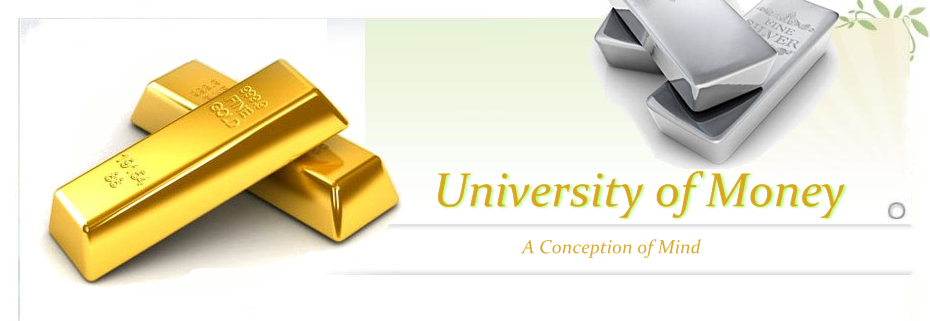Value - The Value Paper Money Represents
WHAT IS THE POINT? WHAT CAN WE LEARN REGARDING PAPER $?
The whole point of this exercise is the realization
that what makes 'currency notes' valuable is the fact that
each one of those notes can be exchanged for something of value. The
paper in itself be in money or securities are not worth the ink they are printed with. The
market or what people are willing to pay for it determines value. In our shallow world perception
is everything.
Should that perception change or the market be prone to artificial
manipulation by controlling supply and demand we are then in deep trouble because now our fate
is at the whim of the market makers. Their interest is short term gain. Our interests are long
term. Society requires long term planning to meet future needs. Infrastructure
investments and long term contracts that we for society to prosper, cease to exist when
dealing with a fickle currency whose future value is unpredictable.
In our fictious example of my gold bars each note or proof of receipt
represents its proportional share or value of what is there is in the my mult-millionaire
neighbour's vaults. This is analagous to what can happen to a country's currency. The
point being that the unit value of money is strictly controlled by the number of notes floating in
society.
Whoever prints the money controls the value of money in society -
another example of supply and demand. Increase the supply of currency you dilute its unit value. If
the entity controlling the printing of currency is not a public entity acting on behalf of the
community at large but rather a private entity what do you think is likely to happen? Inherently
there is a conflict of interest and self interst always rules out. Lets now look at the United
States and then later we will look at Canada as an example of these principles.
US INFLATION
If we look first at the US, it is a fact that since the
introduction of the federal reserve system in 1911 the value
of a dollar today is only $.04 of the original dollar. That is
how the amount of money in circulation has been
inflated to dilute its original unit
value.
Understanding that I would think you would want to ask
yourself how can I maintain the value of the money I
presently earn?
SUISSE ANNUITY earning 12%
If you had $10,000 in a a Swiss annuity in 1911 earning
12%. An annuity is an conservative investment that
is very stable and maintains its current value.
How much do you think that $10,000 would earn over
the course of 96 years asssuming the Swiss Franc kept its relative
value?
Well by the rule of 72 that money would double every
6 years or 16 times over the course of 96 years
1-20 2-40 3-80 4-160 6- 320 7- 640 8-1280
9- 2560 10- 5120 11- 10240 12- 20480 13- 40960
14-81920 15-163840 16-327,680
But If its value is only worth 4 cents of its original value in US
dollars then dividing 100/4 that means its value in US dollars
would be 25x that or $8,192,000.oo in todays US dollars that is IF you had invested your money in a
Swiss annuity - not bad eh?
US INVESTMENT AT 12%
Now Using that same scenario what would your money be worth if you
kept it in an US Bank?
Well you would have $80,000 in the bank but its buying
power in terms of the original value would be $80,000 x 4/100 or only
$13,107.20
The difference is phenomenal!
$8,178,893
WHAT"S THE POINT? VALUE
Keeping your money in Canada and the US may not be your best
strategy no matter what your return for investment here may be IF present value is not
maintained.
Now where do you think the banks keep their money? Certainly
not in the U.S. or Canada if its not in their best interest.
Now you can continue to hang onto your coconuts here in Canada and
the United States and what could be a better place to keep it but in a 401K or an RRSP plan???
;-)
Are you beginning to get the picture?
Now lets examine something we all take for granted and unless this
is changed we are perpetually doomed.
NEXT GO TO Financial Mu$ical
Chair$
|


